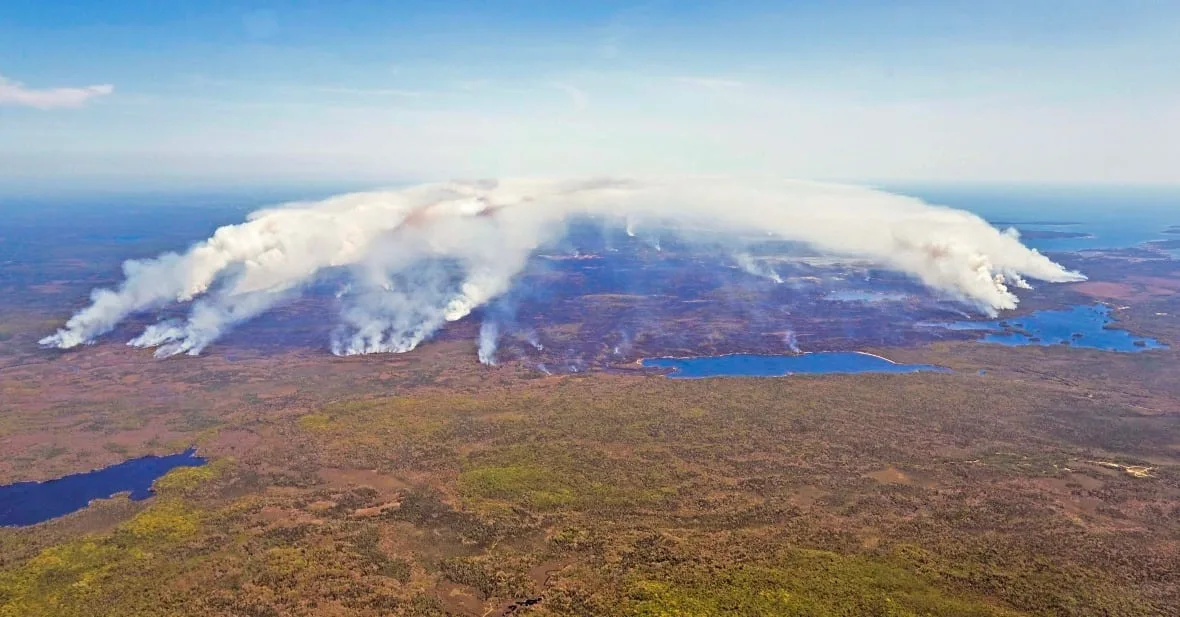
Open fires banned across N.S. until Oct. 15 amid tinder-dry conditions
Nova Scotia's hot, dry summer has prompted the provincial government to ban open fires across the province.
A news release on Wednesday said the ban would be in effect until Oct. 15 — the end of wildfire season — or until conditions improve. The fine for violating the ban is $25,000.
Natural Resources Minister Tory Rushton said in the news release that there is no significant rain in the forecast in the near future.
RELATED: Wildfire smoke returns to Ontario—and could stick around for a while
"We've had a lot of small, manageable fires this month, and conditions are now ripe for any small fire to grow larger," he said.
"Nobody wants a repeat of the devastation we experienced in 2023. I ask all Nova Scotians to co-operate, respect the burn ban and save their campfires and other open fires for a safer time."

A 2023 wildfire in Shelburne County was the largest in recorded Nova Scotia history. On Wednesday, dry conditions prompted a provincewide burn ban. (Communications Nova Scotia)
The province experienced two major wildfires in 2023, one in Shelburne County and one in Upper Tantallon in the Halifax Regional Municipality.
Ground crews responded mid-afternoon Wednesday to a wildfire in the vicinity of Pipeline Road near Head of St. Margarets Bay and Big Indian Lake. The fire was in a heavily wooded area, but was not spreading, according to a Facebook post from Halifax Professional Fire Fighters.
A helicopter from the Department of Natural Resources was dropping water on the fire, which was having "a positive impact on suppression efforts," said the post.
According to a municipal alert, the fire was contained later on Wednesday evening and most firefighters left the area around 8:30 p.m. Natural Resources staff will continue to monitor the site overnight.
Ban applies to open fires that burn wood
The ban announced Wednesday applies to open fires such as campfires, bonfires, brush fires, fires in chimineas and anything else that is not enclosed and uses wood as a fuel source. It does not apply to non-wood-burning devices such as charcoal and gas barbecues.
DON'T MISS: Wildfire leads to evacuation order for 400 properties in B.C.'s Okanagan region
The ban overrides any permits that have been issued for industrial burning. Although it applies to all private property and provincial lands, including parks, it does not apply to federal land.
Parks Canada did not immediately respond to a request about whether it will enact similar measures at its Nova Scotia locations. There were already partial burn restrictions in place at Cape Breton Highlands National Park and Kejimkujik National Park.
Scott Tingley, manager of forest protection for Nova Scotia's Natural Resources Department, told CBC News that there have been instances of people not following the rules and there have been fines issued this season.
"We're certainly concerned and we're trying to reinforce the message to follow the burn restrictions," he said in an interview before the ban was announced.
Despite the dry conditions, Tingley said the number of fires and areas burned this season are below average. He said officials believe the experience of 2023 had an effect in helping people be more aware of restrictions.
"We hope this dry stretch will be temporary and we're just asking everyone to pitch in and help prevent fires," said Tingley.
The dry conditions have also prompted some municipalities to ask residents to conserve water as wells and other water sources run low in certain parts of the province.
This article was originally published for CBC News